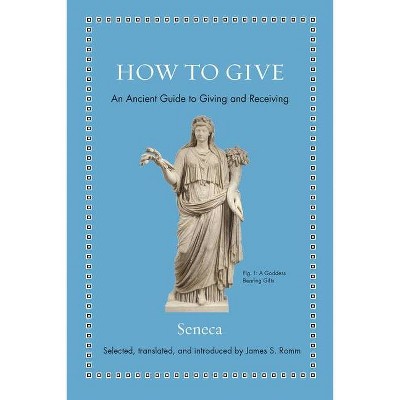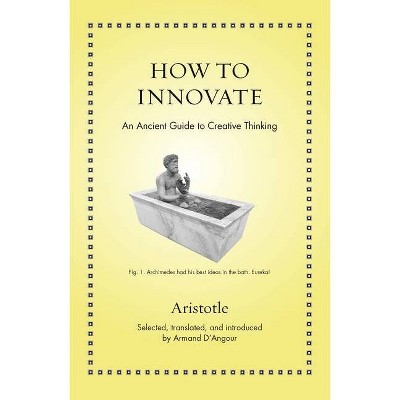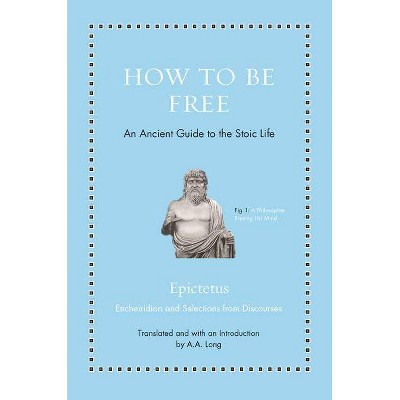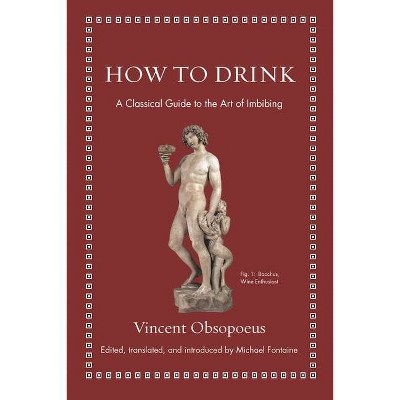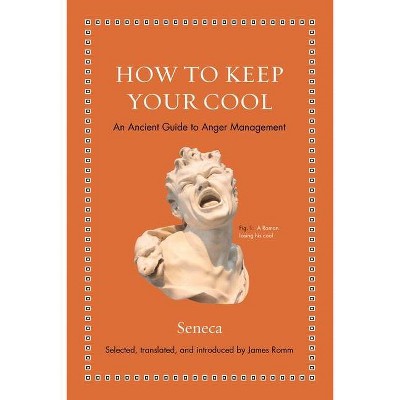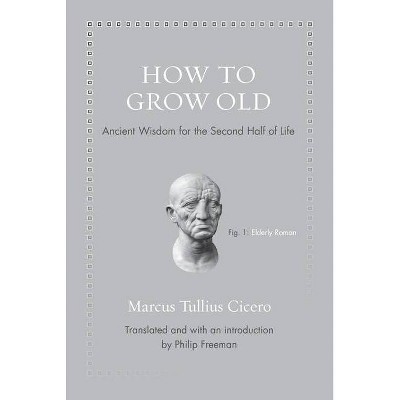How to Be a Bad Emperor - (Ancient Wisdom for Modern Readers) by Suetonius (Hardcover)
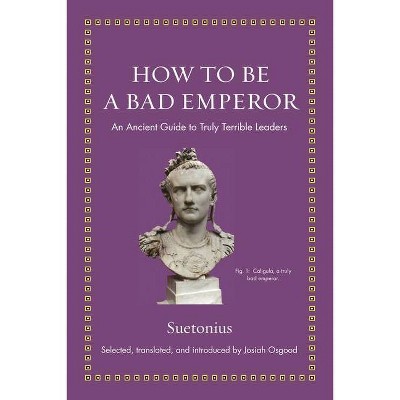
Similar Products
Products of same category from the store
AllProduct info
<p/><br></br><p><b> About the Book </b></p></br></br>"Gaius Suetonius Tranquillus was secretary of correspondence for the emperor Hadrian and author of the multi-part biography, Lives of the Caesars. A landmark in the development of realistic biography-writing, this work gives an account of twelve emperors, beginning with Julius Caesar. In each biography, Suetonius moves beyond the great events of Roman history and sets out to reveal the small and telling details of his subjects' lives. Suetonius' zeal in accumulating and relating what may appear to be trivial has sometimes led to the charge that he was little better than a gossip. Yet he was interested in deeper questions that fascinate political observers today. It is Suetonius' view that emperors ultimately had the power to achieve much both for good and for ill. Augustus beautified Rome, improved its infrastructure, restored its religion, and promoted discipline in the army. But other emperors, such as Tiberius, Caligula, and Nero, infamously used their power to indulge vice and harm others. Ever since their publication, Suetonius' imperial biographies have appealed to readers, both because of their sensational stories and the larger questions of power they raise. They spawned many sequels in antiquity (as well as more recent works like Robert Graves's famed, I, Claudius). While a number of good English translations are in print, reading Lives of the Caesar from cover to cover can be daunting, so many details are included. Also general readers, including students, are really interested in the stories of the bad emperors. This book, then, in a reversal of the usual self-help formula that Suetonius would appreciate, offers selections from the lives of four bad emperors (Julius Caesar, Tiberius, Caligula, and Nero) to create a guide on how to be a bad leader. own worst qualities and become more dangerous to us than any enemy. Osgood will start the volume with an introduction to Suetonius and his biographies, and also include introductions and (as appropriate, epilogues) to the individual selections. These will offer a reader already acquainted with Suetonius a better sense of the biographer's achievement and value as well as some ideas on why autocrats, or would-be autocrats, have always proven a rich subject for biographers"--<p/><br></br><p><b> Book Synopsis </b></p></br></br><p><b>What would Caligula do? What the worst Roman emperors can teach us about how <i>not</i> to lead</b> <p/>If recent history has taught us anything, it's that sometimes the best guide to leadership is the negative example. But that insight is hardly new. Nearly 2,000 years ago, Suetonius wrote <i>Lives of the Caesars</i>, perhaps the greatest negative leadership book of all time. He was ideally suited to write about terrible political leaders; after all, he was also the author of <i>Famous Prostitutes </i>and <i>Words of Insult</i>, both sadly lost. In <i>How to Be a Bad Emperor</i>, Josiah Osgood provides crisp new translations of Suetonius's briskly paced, darkly comic biographies of the Roman emperors Julius Caesar, Tiberius, Caligula, and Nero. Entertaining and shocking, the stories of these ancient anti-role models show how power inflames leaders' worst tendencies, causing almost incalculable damage. <p/>Complete with an introduction and the original Latin on facing pages, <i>How to Be a Bad Emperor</i> is both a gleeful romp through some of the nastiest bits of Roman history and a perceptive account of leadership gone monstrously awry. We meet Caesar, using his aunt's funeral to brag about his descent from gods and kings--and hiding his bald head with a comb-over and a laurel crown; Tiberius, neglecting public affairs in favor of wine, perverse sex, tortures, and executions; the insomniac sadist Caligula, flaunting his skill at cruel put-downs; and the matricide Nero, indulging his mania for public performance. <p/>In a world bristling with strongmen eager to cast themselves as the Caesars of our day, <i>How to Be a Bad Emperor </i>is a delightfully enlightening guide to the dangers of power without character.</p><p/><br></br><p><b> Review Quotes </b></p></br></br><br>An accessible translation. . . .there is no doubt that this volume is a timely product in our era of rising authoritarianism across the globe.<b>---Mallory Monaco Caterine, <i>Polis</i></b><br><br><i>How to Be a Bad Emperor</i> is an exuberant, witty, and incisive critique of four power-hungry egomaniacal Roman emperors. . . . Superbly translated.<b>---Antonio Battagliotti, <i>Open History</i></b><br><br><i>How to Be A Bad Emperor </i>deftly demonstrates what tendencies make a poor leader and exposes fatal character flaws along with a good dose of humour. It's a rollicking, funny, and educational eyeopener on Roman leadership, and a great introduction for newcomers to Suetonius' work. A must-read for anyone interested in Roman History.<b>---Sandra Alvarez, <i>Ancient History Magazine</i></b><br><br>[<i>How to Be a Bad Emperor</i> is] a look at some of the worst emperors from history and how they failed. I am a big believer in learning from cautionary tales, and while of course many of the stories from ancient Rome are extreme, there is plenty to take note of here.<b>---Ryan Holiday, <i>Reading List Newsletter</i></b><br><br>[In <i>How to Be a Bad Emperor</i>], Osgood has provided an important reminder of the delicacy of systems, and how once they are overturned, the citizenry will be eagerly and easily trammeled by power hungry narcissists.<b>---Mary Spencer, <i>New Criterion</i></b><br><br>Fun and instructive.<b>---Brook Manville, <i>Forbes.com</i></b><br><br>A deft introduction to the world and mindset of the Caesars.-- "Inside Story"<br><br>A gleeful new compendium of dastardly highlights from Suetonius' <i>The Lives of Caesars</i> . . . Horribly fascinating.-- "Minerva"<br><p/><br></br><p><b> About the Author </b></p></br></br><b>Josiah Osgood</b> is professor and chair of classics at Georgetown University and the author of many books, including <i>Rome and the Making of a World State</i>, <i>150 BCE-20 BCE. </i>He lives in Washington, DC.
Price History
Cheapest price in the interval: 13.99 on October 23, 2021
Most expensive price in the interval: 13.99 on November 8, 2021
Price Archive shows prices from various stores, lets you see history and find the cheapest. There is no actual sale on the website. For all support, inquiry and suggestion messages communication@pricearchive.us
